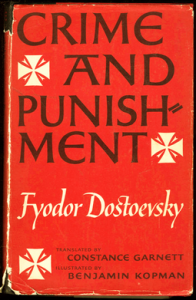Fyodor Dostoevsky’s novels are renowned for their psychological realism and complex character development. He explored themes of guilt, madness, obsession, and the battle between good and evil.
by Shoukat Lohar
SHOUKAT LOHAR
Fyodor Mikhailovich Dostoevsky, a Russian author, and philosopher, is widely regarded as one of the greatest literary figures in history. His works, known for their psychological depth, philosophical exploration, and social commentary, have captivated readers for generations. Dostoevsky’s ability to delve into the complexities of the human psyche and tackle profound philosophical questions in his novels has earned him the title of “The Master of Fiction.” This article aims to explore the life, works, and enduring legacy of Fyodor Dostoevsky.
Life and Influences
Fyodor Dostoevsky was born on November 11, 1821, in Moscow, Russia. He grew up in a middle-class family and experienced the harsh realities of life, including the death of his mother and the economic struggles faced by his father. These early experiences greatly influenced his writing and his exploration of themes such as suffering, morality, and redemption.
Dostoevsky’s exposure to various literary and philosophical works shaped his worldview and writing style. Influences from authors like Nikolai Gogol and Edgar Allan Poe, as well as philosophers such as Friedrich Nietzsche and Søren Kierkegaard, can be seen in his writings. Dostoevsky’s ability to blend literature and philosophy is one of the hallmarks of his exceptional storytelling.

Psychological Realism and Character Development
Dostoevsky’s novels are renowned for their psychological realism and complex character development. He had a remarkable talent for portraying the intricacies of the human mind and the inner struggles faced by his characters. Through his works, Dostoevsky explored themes of guilt, madness, obsession, and the battle between good and evil.
His most famous novels, including “Crime and Punishment,” “The Brothers Karamazov,” and “Notes from Underground,” showcase his ability to create deeply flawed and morally ambiguous characters. Dostoevsky’s characters are not mere archetypes but are multi-dimensional, with conflicting desires and motivations, making them relatable and thought-provoking.
Philosophical and Social Commentary

Dostoevsky’s novels go beyond storytelling; they serve as powerful vehicles for philosophical and social commentary. He tackled profound existential questions, the nature of faith and belief, the role of religion in society, and the consequences of moral choices. Dostoevsky’s exploration of these themes reflected the tumultuous social and political climate of 19th-century Russia.
His novels often depicted the social divides and moral crises of his time, shedding light on the human condition and the impact of societal structures on individuals. Dostoevsky’s works offered profound insights into the human experience and continue to resonate with readers across cultures and generations.
Legacy and Influence
Fyodor Dostoevsky’s impact on literature and philosophy cannot be overstated. His innovative narrative techniques, deep psychological insights, and philosophical musings have influenced countless writers and thinkers. His works continue to be studied, analyzed, and celebrated worldwide.
Dostoevsky’s exploration of human psychology and moral dilemmas laid the foundation for the emergence of psychological realism in literature. His influence can be seen in the works of renowned authors like Albert Camus, Franz Kafka, and Jean-Paul Sartre.

Fyodor Dostoevsky’s contributions
Crime and Punishment is Dostoyevsky’s best-known work. The story is about a college student and how his poor upbringing has affected his life. Thinking he can commit a crime because the ordinary moral codes do not apply to him, he murders a pawnbroker and takes her money intending to do well with it, but with love, he is revitalized and turns himself in.
Although Dostoyevsky was renowned for Crime and Punishment, the author contributed other famous literary works. He was known for his ability to show the reality of the Russian people and their struggles within his writing. –Courtesy: Sindh Courier

Shoukat Lohar is an assistant professor in English at Mehran University of Engineering and Technology Jamshoro, Sindh. He can be reached at Shoukat.ali@faculty.muet.edu.pk

The High Asia Herald is a member of High Asia Media Group — a window to High Asia and Central Asia

